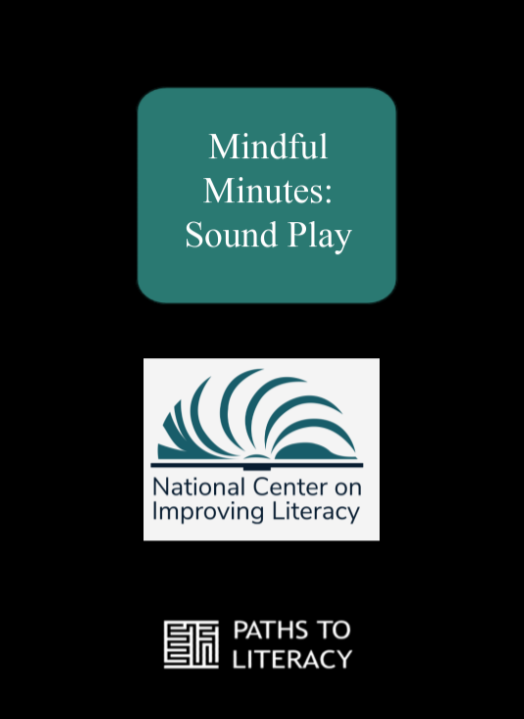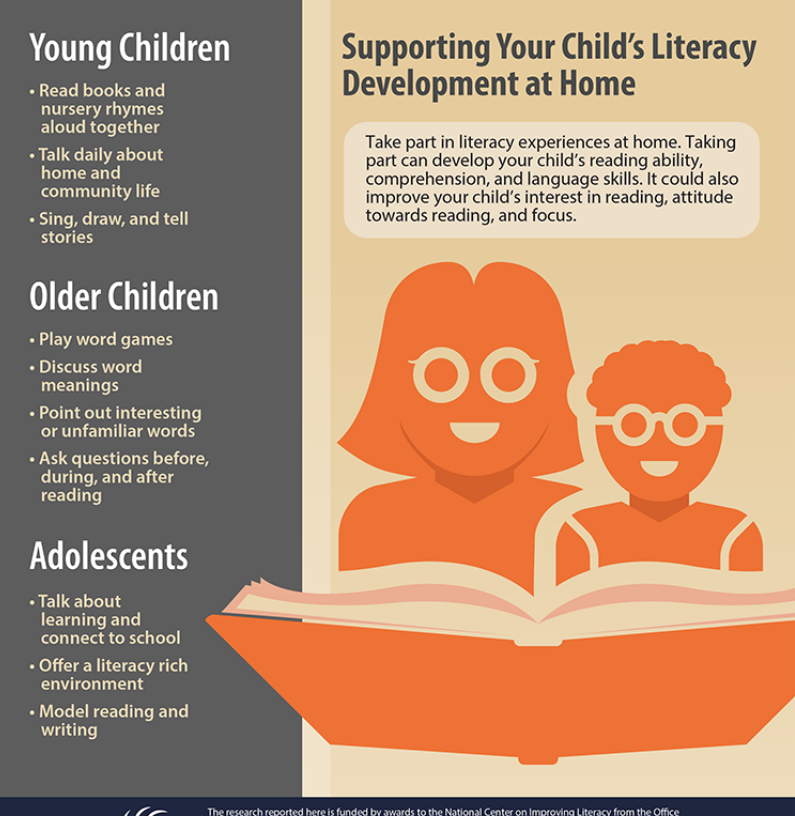Mindful Minutes: Sound Play
The National Center on Improving Literacy and Idaho's Department of Education have created a short, two and a half minute video to highlight the importance of playing with sounds and spoken words to develop strong listening and reading skills.
The Video States:
An important skill for learning to read is the ability to play with sounds and spoken words. One simple way to help your child develop strong listening and early reading skills is to talk with him or her about spoken sounds and words during everyday experiences.
Use daily activities as opportunity to play with sounds and spoken words with your child. Research shows that there is a connection between a child's knowledge of sounds and success in early reading.
For additional resources and supporting materials from this video, please visit improvingliteracy.org.
Additional Resources for Supporting Literacy by The National Center on Improving Literacy
Available in Spanish: Descargar en Español
The Big Ideas at the National Center on Improving Literacy:
- Talking with your child helps your child to learn about letters and letter sounds, learn new words and ideas, practice hearing and saying words, and practice talking back and forth.
- Helping your child with speech sounds and letters helps your child hear how language works, learn that letters relate to spoken sounds, link letters to their sounds, and read words later.
- Talking about books with your child helps your child see that pictures stand for real things, learn that print tells a story, find new ways to say things, and learn new words.
- Reading with your child helps your child learn new sounds, words, and ideas, link letters to their sounds, and learn how books work.
- Asking questions when talking about or reading books helps your child think in new ways, consider new words and ideas, explain your child's thinking, and make sense of letters, sounds, and words.


